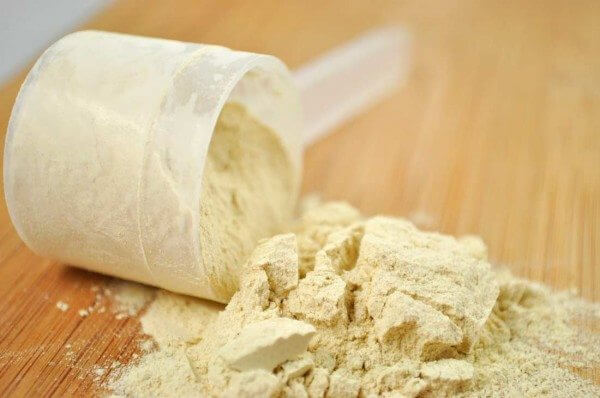Whey isolate vs whey concentrate - both are great supplements, but which one should you choose? Check out the pros and cons and select the product which will develop the most muscle for you.
What is Whey?
Whey is a complex protein made up of smaller proteins which include immunoglobulins, macro peptides and other minor peptides, among others. Every one of these protein sub-fractions are endowed with distinctive biological properties.
In addition to protein, whey contains fats, carbohydrates, vitamins and minerals. Whey protein is a dairy protein and is obtained as a by-product when milk is turned into cheese. Physically, whey is the watery portion that remains when milk is curdled to make cheese.
This article aims to discuss the major differences between whey concentrate and whey isolate and which one would be a better choice for you as a bodybuilder.
Why is Whey Protein a Favorite?
Whey protein is easily absorbed and easily digested. The quality of protein found in whey is better when compared to that in soy, egg or milk. The presence of branched chain amino acids in whey helps to retain the lean muscle tissue for dieters and bodybuilders.
Moreover, it augments muscle synthesis, aids repair and recovery, and boosts the immune system in addition to burning fat and improving sensitivity to insulin.
A major effect of whey protein is its ability to raise the levels of glutathione in a body. It is an antioxidant found in the human body. In the market, whey protein is available in powder form.
Whey Isolate vs. Whey Concentrate
Raw whey contains a considerable amount of milk sugar (lactose) and fats. A concentration/isolation process (microfiltration or ion exchange) is employed to remove most of the lactose and fats and convert it to a pure and more desirable form.
The end result is one of three forms of whey protein: concentrate, isolate and hydrolysate. The last one is obtained when the isolate is further processed. This form of protein is rapidly absorbed into the bloodstream.
The percentage of proteins in whey concentrates may vary between 30 and 80. A combination of lactose, fats and some protein compounds make up the rest.
However, isolates have a protein content of over 90 percent. Whey proteins are isolated using a process called cross-flow micro-filtration. Whey protein isolates have less carbs, lactose and calories than other forms.
This process also helps them to retain a few of the peptides in their best forms when compared to isolates manufactured using the ion exchange method.
It is a great choice if you are looking to build muscle or for repair and recovery without adding body fat. The low levels of lactose in the compounds make it an ideal choice for you in case you have lactose intolerance.
Though whey protein concentrates have less protein per unit than whey protein isolates, it is interesting to note that many peptides beneficial to health are found in the concentrates. It is also important to note that these compounds have a beneficial effect only if they remain in their basic format.
The process of purification of whey protein into its isolates sees some of these compounds lose their potential. If the conversion takes place under low temperature conditions, the chances of denaturing of protein are lessened.
However, as the amino acids sequences do not change on the way to being processed as isolates, this form provides great muscle building properties.
Making the Right Choice
When you choose a whey protein, it is important to bear in mind your tolerance to the protein, your goal and your budget. Whey concentrates cause bloating and gas if you are lactose intolerant. Whey protein isolates are more expensive and contain lower amount of the precious peptides.
This is specifically beneficial to those who are restricting calorie intake. Whey isolates are capable of stimulating a better insulin response when ingested. Therefore, they work better when consumed after a workout. However, if you want to limit raised levels of insulin, whey protein isolates may not be the right choice.
Protein whey isolates taste better than whey protein concentrates. However, when taking into account their consistencies, whey protein concentrates make smoother protein shakes. Shakes made out of whey protein isolates are of thinner consistency because most of the fats have been removed.
Wrapping up, whereas whey protein concentrates cost you less and help you to improve your general health, whey protein isolates gives you protein that is rapidly absorbed (after a workout) while simultaneously being easy on your digestive system.



